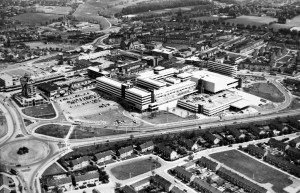 This post has kindly been written for us by Professor Richard Hoyle, Director and General Editor of the Victoria County History.
This post has kindly been written for us by Professor Richard Hoyle, Director and General Editor of the Victoria County History.
One thing which is pretty certain is that everyone who attends this year’s local history conference sponsored by the IHR and VCH lived through a part of the twentieth century – quite probably a fair chunk of it. And yet this conference starts with the premise that the twentieth century is often the hardest and most elusive period for local historians to deal with, being of our own times, familiar, yet strangely out of reach. It saw enormous upheavals in institutions, ownership and landscape, and in individual experience. Many of the familiar sources to address these sources disappear – so estate records – whilst others loose much of their evidential value (newspapers). Many modern records are closed to users: others may not even exist, having been swept away by records management. Yet other possibilities emerge, notably oral history, and for no other period do we have such abundance of maps and, of course, photographs (including those taken from the air).
This is a conference is for everyone who wants to contribute to an emerging agenda of looking at the relatively recent past. It offers guidance on some of the sources whilst describing, through worked examples, how the researcher can make their own contribution to deepening knowledge and understanding of the twentieth century. It explores what is before us, and is sometimes too obvious to see.
For further information on the School programme or for an application form, please see: http://www.history.ac.uk/research-training/courses/summer-school-local-history-2015.
